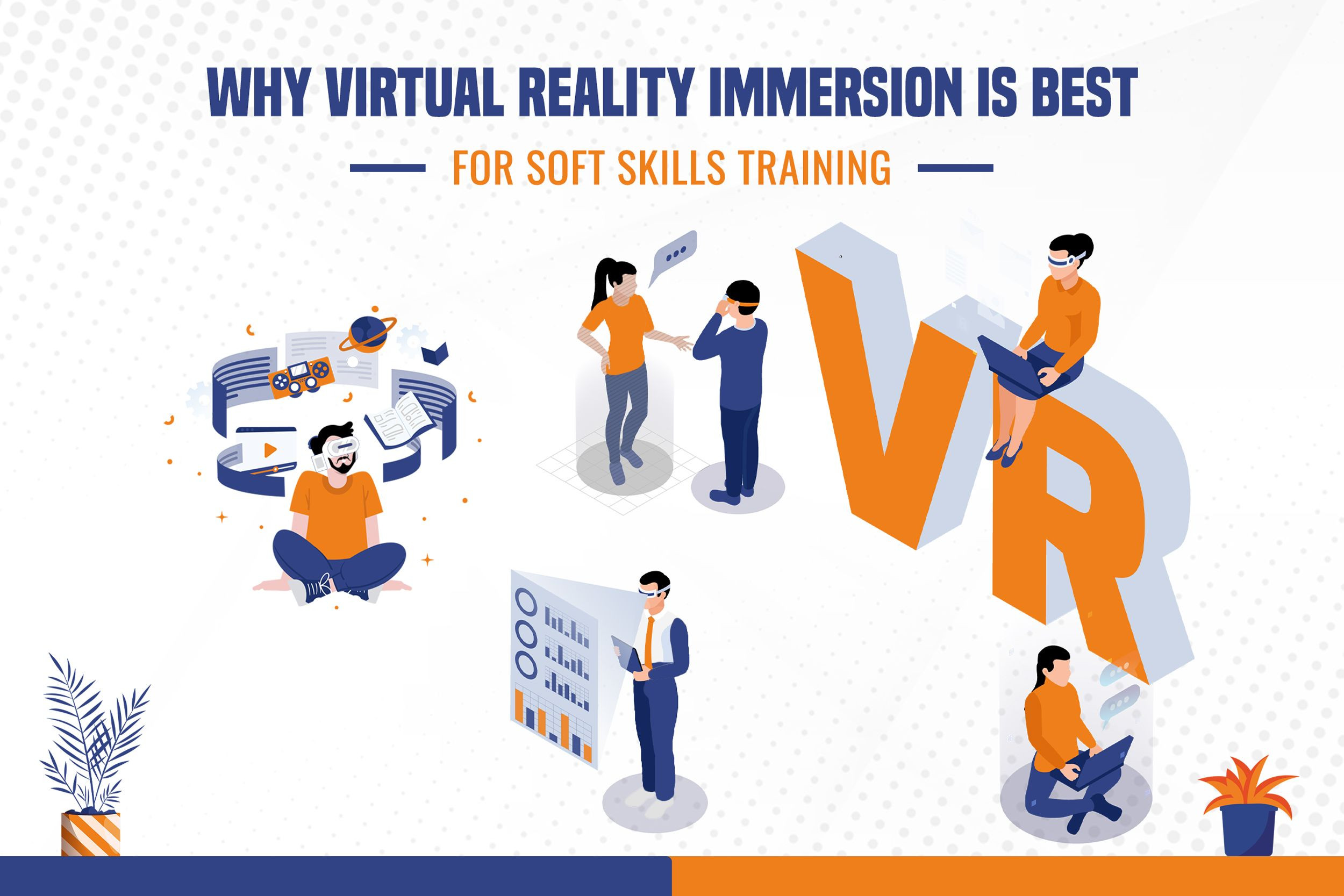
Why Virtual Reality Immersion Is Best for Soft Skills Training
In today's fast-paced world, soft skills are becoming increasingly important for professional success. Soft skills, also known as interpersonal skills or people skills, are the personal attributes that enable individuals to interact effectively and harmoniously with others. These skills include communication, teamwork, problem-solving, adaptability, and leadership. While traditional training methods have been effective in teaching soft skills, the emergence of virtual reality (VR) technology has revolutionized the way we learn and develop these essential skills.
The Power of Virtual Reality Immersion
What is Virtual Reality?
Before delving into the benefits of virtual reality immersion for soft skills training, it's important to understand what virtual reality actually is. Virtual reality refers to a computer-generated simulation of a three-dimensional environment that can be interacted with and explored by an individual. By wearing a VR headset, users are transported to a virtual world that feels incredibly realistic and immersive.
How Does Virtual Reality Immersion Work?
Virtual reality immersion is achieved through the use of specialized VR headsets and accompanying controllers. These headsets, such as the Oculus Rift or HTC Vive, are equipped with high-resolution displays and motion-tracking sensors that enable users to experience a sense of presence within the virtual environment. By tracking the user's movements and rendering corresponding visuals and sounds, VR technology creates an illusion of being physically present in a different reality. More knowledge can be acquired through Technical Learning on these topics.
The Benefits of Virtual Reality for Soft Skills Training
Virtual reality immersion offers numerous advantages over traditional training methods when it comes to developing soft skills. Let's explore some of the key benefits:
Realistic Simulations
Virtual reality allows trainees to engage in realistic simulations of various workplace scenarios. Whether it's a client meeting, a team collaboration exercise, or a challenging negotiation, VR can recreate these scenarios with remarkable accuracy. Trainees can practice their soft skills in a safe and controlled environment, making mistakes and learning from them without any real-world consequences.
Enhanced Engagement and Retention
Traditional training methods often struggle to maintain trainees' attention and interest. Virtual reality, on the other hand, captivates learners by providing an immersive and interactive experience. When individuals are actively engaged in a virtual environment, they are more likely to retain the information and skills they acquire. Studies have shown that Technical Training in VR can lead to higher retention rates compared to traditional methods.
Safe Learning Environment
Soft skills training often involves practicing interpersonal interactions, which can be challenging and intimidating for some individuals. VR offers a safe and judgment-free learning environment where trainees can build their confidence without the fear of making mistakes in front of others. This safe space allows learners to experiment, receive immediate feedback, and iterate their approach until they feel comfortable and competent.
Personalized Learning Experiences
One of the strengths of virtual reality is its ability to adapt and customize Technical Training and other training experiences for individual learners. Through AI-powered algorithms, VR programs can analyze trainees' performance, identify areas for improvement, and provide tailored feedback and guidance. This personalized approach ensures that each learner receives the support they need to develop their soft skills effectively.
Overcoming Physical Constraints
Soft skills training often requires face-to-face interactions and physical presence, which can be challenging in certain situations. Virtual reality overcomes these constraints by enabling remote and asynchronous training. Learners can engage in VR simulations from any location and at any time, eliminating the need for travel or coordinating schedules. This flexibility makes soft skills training more accessible and convenient for individuals and organizations alike.
Cost-Effectiveness
While implementing virtual reality Technical Training Courses initially requires an investment in hardware and software, it can ultimately be a cost-effective solution in the long run. Virtual reality eliminates the need for physical training spaces, travel expenses, and instructor fees. Once the infrastructure is in place, organizations can scale their soft skills training programs without incurring significant additional costs.
Can Virtual Reality Really Replicate Real-World Interactions?
Virtual reality can create highly realistic simulations that closely resemble real-world interactions. While it may not fully replace real-life experiences, it provides an immersive environment that allows learners to practice and develop their soft skills effectively.
How Long Does It Take To See Results From Virtual Reality Training?
The time required to see results from virtual reality training can vary depending on the individual and the specific soft skills being developed. However, studies have shown that even short-term VR training interventions can lead to significant improvements in soft skills, with participants demonstrating enhanced performance and confidence.
Potential Drawbacks Or Limitations Of Virtual Reality Soft Skills Training
While virtual reality training offers numerous benefits, it's important to consider potential drawbacks. These may include the initial cost of setting up VR infrastructure, the need for technical support and maintenance, and the possibility of motion sickness or discomfort for some individuals. However, as technology evolves, these limitations are being addressed and minimized.
Final Words
Virtual reality immersion is revolutionizing soft skills training by providing realistic simulations, enhancing engagement and retention, offering a safe learning environment, providing personalized Technical Learning experiences, overcoming physical constraints, and offering cost-effectiveness. By harnessing the power of VR, individuals, and organizations can effectively develop and strengthen their soft skills, ultimately leading to improved performance, collaboration, and success in the professional world.
